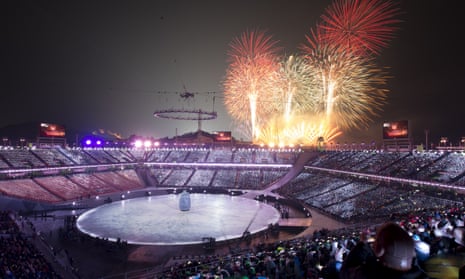Winter Olympics officials have confirmed the games were hit by a cyber-attack during the opening ceremony – but have refused to confirm rumours in Pyeongchang that Russia was responsible.
Shortly before the ceremony, the official Pyeongchang 2018 site stopped working, with users unable to access information or print tickets for events. The website was only normalised at 8am on Saturday, 12 hours later.
The wifi in the Pyeonchang Olympic stadium also stopped working along with televisions and internet at the main press centre.
There are growing concerns the cyber-attack was Russian in origin, and was a response to the fact the Russian Olympic committee was banned from the games in December – along with nearly 200 Russian athletes – because of state-sponsored doping at the games in Sochi in 2014.
Pyeongchang 2018 spokesperson Sung Baik-you refused to confirm the country behind the attack but said: “There was a cyber-attack and the server was updated yesterday during the day and we have the cause of the problem.
“They know what happened and this is a usual thing during the Olympic Games. We are not going to reveal the source.
“We are taking secure operations and, in line with best practice, we’re not going to comment on the issue because it is an issue that we are dealing with,” he said.
“We wouldn’t start giving you the details of an investigation before it is coming to an end, particularly if it was on security which, at these games, is incredibly important.”
Meanwhile Mark Adams, the International Olympic Committee’s head of communications, said he personally did not know who was behind the attack.
“We don’t reveal details in public because actually at the moment, we are making sure that our systems are secure, which they are, so discussing details is not helpful,” he said. “But we will have a full report and, I guess, it will be made public.”
If the attack is proved to come from Russia, it may change the IOC’s stance over whether to lift the country’s suspension before the closing ceremony and allow athletes to march under their own flag. As things stand Russian athletes are competing under the Official Athlete of Russia banner and under a neutral flag.
